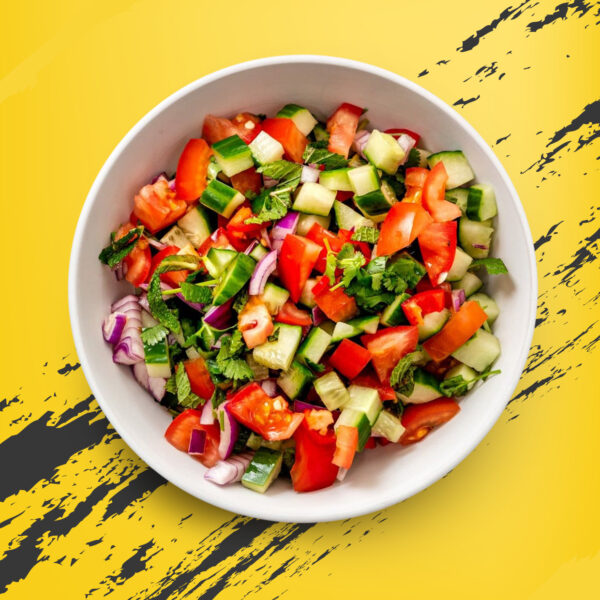Eating healthy is not just about cutting calories or skipping meals — it’s about balance. The three main macronutrients that your body needs every day are proteins, carbohydrates (carbs), and healthy fats. Understanding how to balance these in your daily meals can transform your energy, mood, weight, and overall health.
In this guide, we explain how to build a well-balanced diet with the right mix of protein, carbs, and healthy fats to help you live better and feel stronger.
What Are Macronutrients?
Macronutrients are nutrients your body needs in large amounts. They give you energy and support body functions like growth, repair, and brain activity. The three main types are:
- Proteins: Help build and repair tissues
- Carbohydrates: Provide energy
- Fats: Support brain health, hormone production, and vitamin absorption
Balancing these nutrients is key to achieving and maintaining good health.
Why Balance Is Important
A balanced intake of protein, carbs, and fats helps:
- Maintain a healthy weight
- Keep blood sugar levels stable
- Reduce cravings and overeating
- Improve mental clarity
- Support muscle growth and fat loss
- Boost metabolism and energy levels
Eating too much or too little of any one macronutrient can lead to fatigue, weight gain, or health issues.
How Much of Each Nutrient Should You Eat?
There is no single perfect ratio for everyone, but the general guideline for a balanced diet is:
- Carbohydrates: 45–65% of daily calories
- Protein: 10–35% of daily calories
- Fats: 20–35% of daily calories
To calculate your needs, consider your age, activity level, health goals, and body composition. For example, athletes or people trying to build muscle may need more protein, while others may need more carbs for energy.
Understanding Protein: The Building Block
What Does Protein Do?
Protein builds and repairs muscles, organs, skin, and hair. It also helps with hormone and enzyme production.
Good Sources of Protein
- Animal-Based: Chicken breast, turkey, lean beef, eggs, fish, Greek yogurt
- Plant-Based: Lentils, beans, chickpeas, tofu, tempeh, quinoa, edamame
How Much Protein Do You Need?
A general rule is 0.8 grams per kilogram of body weight for the average adult. Athletes or people doing heavy exercise may need 1.2–2.0 grams/kg.
Example: If you weigh 70kg (154 lbs), you need around 56g–140g of protein per day depending on activity level.
Understanding Carbohydrates: The Body’s Main Fuel
What Do Carbs Do?
Carbs are the body’s preferred energy source. They break down into glucose, which fuels the brain, muscles, and organs.
Types of Carbs
- Complex Carbs (Healthy): Whole grains, oats, brown rice, sweet potatoes, legumes, vegetables
- Simple Carbs (Unhealthy in excess): White bread, sugar, pastries, sodas
Complex carbs release energy slowly and keep you full longer, while simple carbs spike blood sugar and leave you hungry.
How Much Carbohydrate Should You Eat?
If you eat 2,000 calories a day, 45–65% of that should be from carbs — around 225g to 325g per day. Choose high-fiber, nutrient-dense sources.
Understanding Fats: Essential, Not Evil
What Do Fats Do?
Fats support hormone production, brain function, and help absorb vitamins A, D, E, and K. They also provide long-lasting energy.
Types of Fats
- Healthy Fats (Unsaturated): Olive oil, avocados, nuts, seeds, fatty fish (salmon, sardines)
- Unhealthy Fats (Trans & Some Saturated): Processed snacks, deep-fried foods, hydrogenated oils
How Much Fat Should You Eat?
Around 20–35% of your total calories should come from fats. That’s 44–78g per day on a 2,000-calorie diet.
Tips to Build a Balanced Meal
Creating a well-balanced plate is simple if you follow these tips:
1. Use the “Plate Method”
- 50% vegetables and fruits
- 25% lean protein
- 25% whole grains or complex carbs
- Add a small amount of healthy fat (olive oil, avocado, nuts)
2. Include Protein in Every Meal
Adding protein to meals helps you stay full and prevent overeating. Add eggs, beans, or grilled chicken to your breakfast, lunch, or dinner.
3. Choose Whole Over Refined Carbs
Always go for whole grains like oats, brown rice, or quinoa over white rice and white bread.
4. Don’t Fear Healthy Fats
Avocado, nuts, olive oil, and seeds are great for your heart and brain. Use them in moderation.
5. Watch Portion Sizes
Too much of any macronutrient can cause weight gain. Use your hand as a portion guide:
- Protein = palm size
- Carbs = cupped hand
- Fats = thumb size
Sample Balanced Meal Plan (2,000 Calories)
Breakfast
- 2 boiled eggs (protein)
- 1 slice of whole-grain bread (carbs)
- 1 tablespoon avocado (healthy fat)
- Mixed fruit bowl (fiber, vitamins)
Snack
- Handful of almonds (fat & protein)
- 1 apple (fiber & carbs)
Lunch
- Grilled chicken breast (protein)
- Brown rice (carbs)
- Steamed broccoli + olive oil (fiber & fat)
Snack
- Greek yogurt (protein)
- Berries (antioxidants & carbs)
Dinner
- Baked salmon (protein & omega-3 fat)
- Quinoa (carbs & protein)
- Spinach salad with walnuts and vinaigrette (fiber, fat, nutrients)
Common Mistakes to Avoid
- Skipping meals: This can lead to overeating later.
- Too many simple carbs: Causes sugar crashes and cravings.
- Low-fat obsession: Healthy fats are necessary for your body.
- Not enough protein: Leads to muscle loss, hunger, and poor recovery.
- Ignoring fiber: Needed for digestion and feeling full.
Benefits of a Balanced Macronutrient Diet
Balancing your macronutrients offers many long-term benefits:
- Weight Control: Helps burn fat and build lean muscle.
- Better Focus: Fueling your brain with the right nutrients improves concentration.
- Improved Digestion: Fiber-rich carbs and fats support gut health.
- Reduced Inflammation: Healthy fats and whole foods calm the body.
- Stable Energy: No more sugar crashes or energy dips.
How to Track Your Intake
Use apps like MyFitnessPal, Cronometer, or LoseIt! to log meals and track your daily macros. This helps you stay within your target ranges and make better food choices.
Final Thoughts
Balancing protein, carbs, and healthy fats doesn’t have to be complicated. Focus on whole, unprocessed foods, eat a variety of nutrients, and listen to your body. Whether you want to lose weight, gain muscle, or just feel better — a balanced diet is the foundation of long-term health.
Remember: Consistency matters more than perfection. Make small changes and build habits that support your goals.
Beehive Restaurant and Lounge is a vibrant culinary destination in Portland, Oregon, offering a unique blend of authentic African cuisine infused with the sweetness of honey. Whether you’re joining us for a meal or a special celebration, Beehive is your hive of warmth, hospitality, and exceptional culinary delights. Connect with us on social media and join our community to stay updated on our latest offerings and events!








